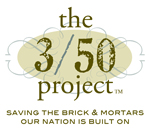by Timothy Rutt
We have relied on a police scanner at Altadenablog almost since the beginning. Scanning the local police and fire radio frequencies has been part of the daily routine for us, and has been invaluable in a couple of cases to just find what later turned out to be important stories.
And let's not even bring up the Station Fire, where we could track police and fire activity in real time and relay important information as soon as it happened. Since the sheriffs didn't have anybody regular that we could call and ask questions, we relied on the scanner to know which streets were being closed and when evacuation alerts went out. Without it, we would've been lost, and our readers relied on it.
Well, police, fire, and other emergency agencies are changing: as of Jan. 1, 2013, all must be on a digital system. Public safety radio communications used to be entirely analog, i.e. the way your car radio works. Digital systems rely on sending a digital signal that gets decoded by the radio.
It some ways, it's needed: going digital will free up bandwidth, and digital signals are clearer than analog. It's a pain in the wallet, though, as you can pick up an analog scanner for less than $200 (our portable scanner was $75 on sale at Radio Shack, and our desk scanner less than $200 on Ebay). Our new digital scanner (which still picks up analog signals) went for about $600.
So while we're willing to bite the bullet and pay more to listen to the new system, something else is troubling: some agencies are moving to encrypted digital signals. Early in January, our stream of pretty constant chatter from the Pasadena police department went silent as they moved to an encrypted digital system. Our media partners at the Pasadena Sun have an article on how several other agencies will go encrypted when they make the switch to digital.
Pasadena Police Chief Philip Sanchez said that they were thinking of making decrypting scanners available to the news media, but they don't seem to be in any hurry to make that happen. County employees we've talked to are mum so far on whether they will encrypt or not, but several articles we've read point out the real fact that not just news media and hobbyists, but criminals are listening in, too.
We for one want as much access as possible. Making police transmissions public serves as an important public watch on police action, insuring transparancy. In case of an emergency, such as a Station Fire or a high windstorm, or an earthquake, news agencies serve an important function of spreading safety information far and wide as soon as possible, and checking scanner traffic is, we feel, essential. In these cases, having more people listening to the radio increases public safety.
But we're also sympathetic to the need of police to keep a step or two ahead of criminals. Perhaps when the county makes the switch, it can do what Glendale does, in having the primary channels open and only encrypting tactical and undercover channels. But encrypting everything is not the way to go.



